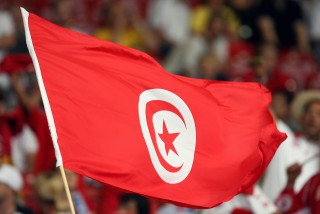An appeals court in Tunisia yesterday freed presidential hopeful Nabil Karoui from prison, averting the risk of citizens electing a jailed candidate. This comes only a few days before Sunday’s runoff election.
A runner up in the initial round of the presidential vote last month, Karoui spent weeks in pre-trial detention after he was arrested on August 23, even before the first round of the election.
Karoui took 15.6 percent of last month’s vote while retired law professor Kais Saied came first with 18.4 percent. The media mogul has spent the whole campaign period in prison waiting for a verdict in his trial for money laundering and tax fraud, charges he denies.
“The appeals court has decided to immediately free Nabil Karoui,” his lawyer Kamal Ben Massoud told Reuters without giving further details. Karoui will now face independent candidate Saied in the second round of voting.
What next after Karoui’s release?
Although granted freedom by the appeals court, Karoui still faces the corruption charges for which he was jailed and remains subject to a travel ban and asset freeze. There is no official date yet for the passing of a verdict in the case.
Pending a final judgment, the candidate’s release means a televised debate can now hold between him and Saied. He missed the country’s inaugural edition of the debate between the 25 other candidates who contested the first round of the vote.
Karoui’s freedom could also aid the efforts of his party, Heart of Tunisia, in negotiating with the Islamist Ennahda party to form a coalition government. Reports say both parties have publicly resisted working together.
Ennahda won last Sunday’s separate parliamentary election but fell far short of the majority required to form a government. Coming second is the Heart of Tunisia party according to preliminary official results released on Wednesday.
A constitutional crisis is on the horizon
Tunisia’s presidential election on Sunday is the second since the 2011 revolution that ousted longtime autocratic leader Zine El Abidine Ben Ali. The country is trying to strengthen its democracy, eight years after the revolution that also inspired the Arab Spring.
While all is set for the runoff, a huge question is what happens if Karoui emerges winner of the election while he has an ongoing corruption case? In his article on Reuters, Angus McDowall described the situation as “bizarre” and says it could cause a “constitutional crisis.”
Considering the electoral commission has already warned that Karoui’s detention may violate election rules, the candidate may have a basis to appeal results if he loses, as he spent most of the campaign in prison. On the flip side, Saied could also appeal if Karoui wins. This would be possible if the allegations on the lobbying contract are proven.
Meanwhile, if Karoui is detained again and wins the vote, it is uncertain if he can be sworn in without leaving his prison cell to attend the ceremony in parliament. Subsequently, if the court finds him guilty of the corruption charges, it is not clear whether presidential immunity would apply to crimes committed prior to the election.
Such disputes are to be settled by a constitutional court according to Tunisia’s 2014 constitution. However, the country does not have one yet as parliament has been too divided to agree on judge selections. Ultimately, if the president is not sworn in within 45 days, Tunisians will have to return to polls.








